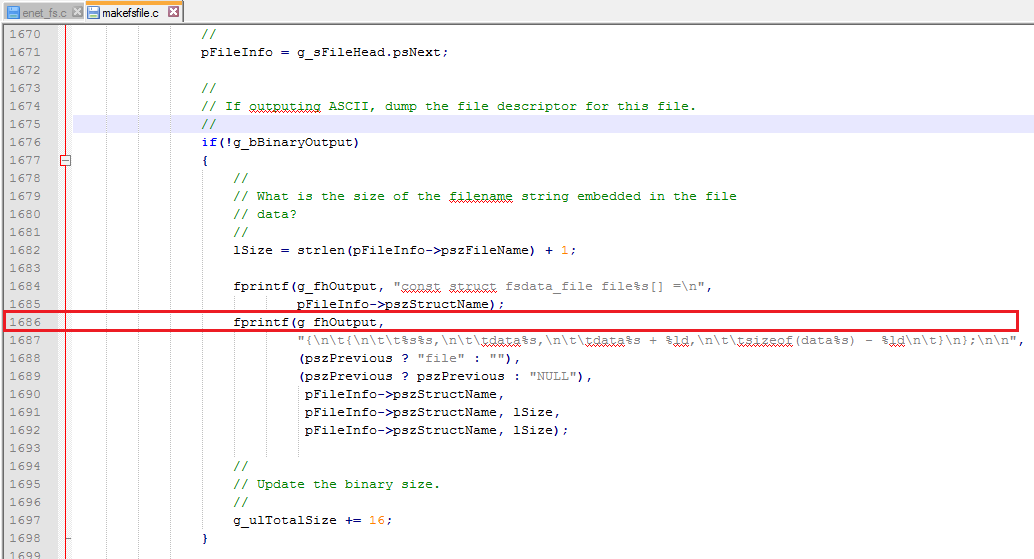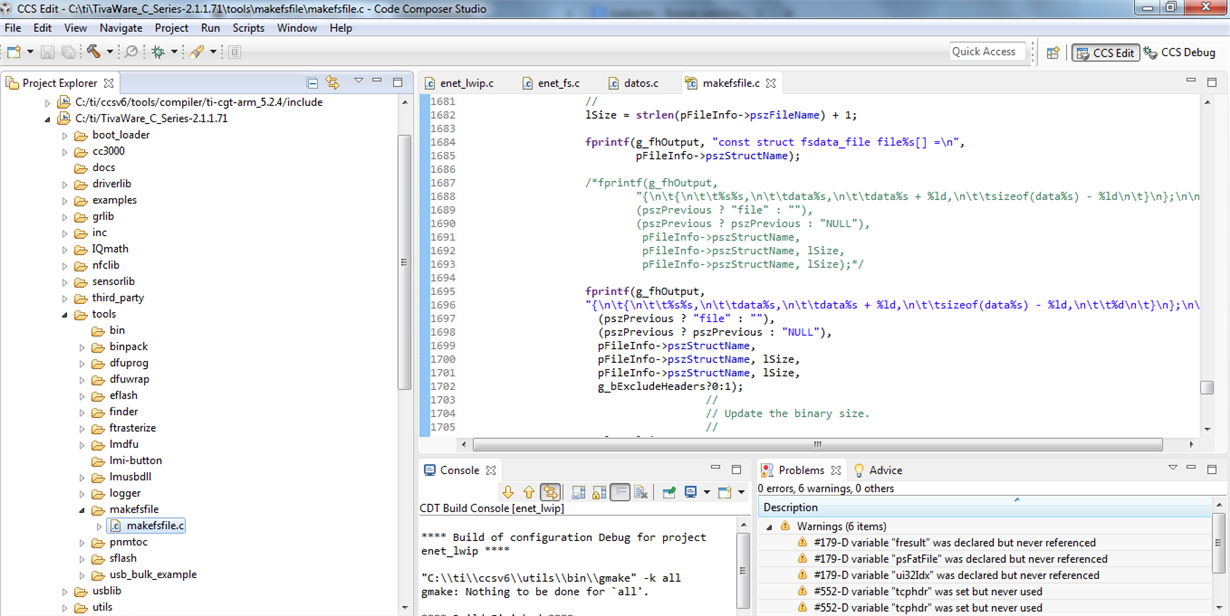Hi fellows, good afeternoon, today I'm writting because I found a message at the websites I'm working at, based on the enet_lwip example in the ek-tm4c1294xl board.
This issue sometimes apppears sometimes not, in fact if I refresh the website several times sooner or later it goes away. It is very problematic because it beaks the website down, and the JavaScript function linked stop working, the CSS styles also changes.
The error is the one blue circuled. I will be grateful if someone can tell me what's going on with this issue.
I also have several warning whan I compile the project, and one of these:
When I search for updates in the help menu, it notifyis me there anot updates availables, I was thinking perhaps it could be related with the error message found.
Thanks in advanced, Regards
Martin c!










